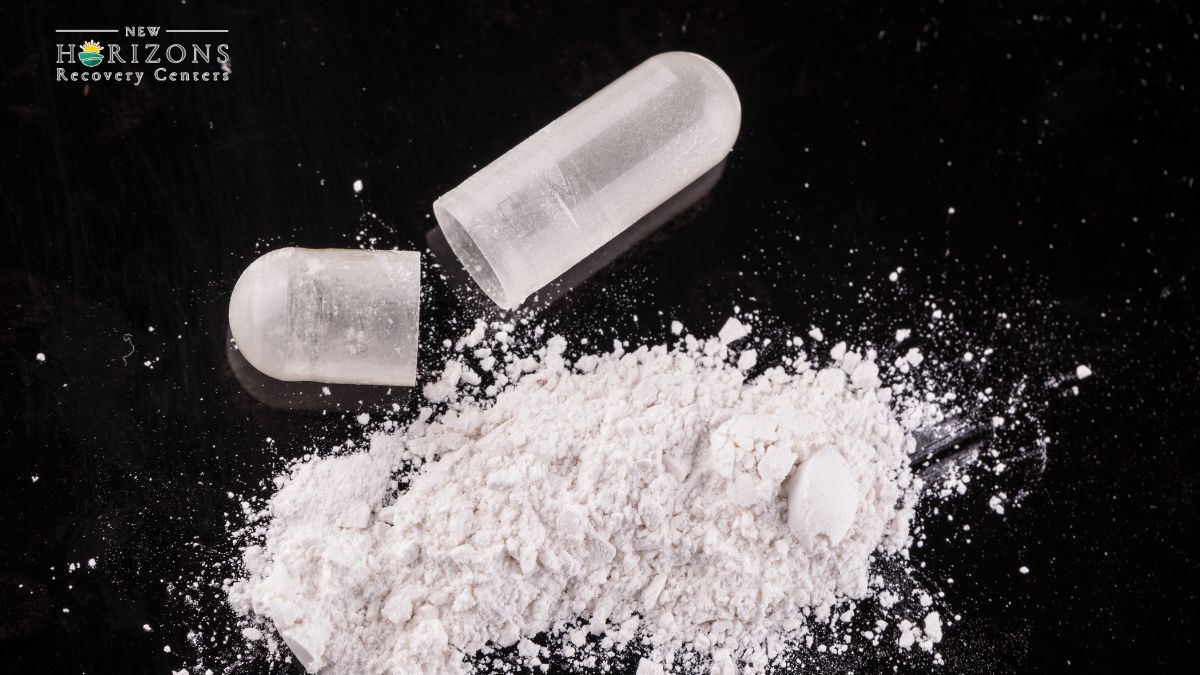
Importance of Completing Treatment
When it comes to drug and alcohol rehab, completing the full course of treatment is of utmost importance for individuals seeking recovery. Dropping out of treatment prematurely can have significant negative consequences, while completing treatment offers long-term recovery benefits.
Impact of Dropping Out
Research indicates that drop-out rates from substance abuse treatment programs are a prevalent issue. A study analyzing data from 151 different studies on substance abuse treatment facilities found that almost one-third of all participants drop out of treatment and do not complete it.
Dropping out of treatment is associated with increased risks of relapse. The rates of relapse are higher for individuals who do not complete their treatment compared to those who complete the full course. This emphasizes the importance of staying committed to treatment until the end.
Long-Term Recovery Benefits
Completing drug and alcohol treatment plays a crucial role in an individual's recovery journey. Those who successfully complete treatment have a greater chance of achieving long-term remission from their addiction. Research suggests that the length of time in treatment is associated with positive treatment outcomes, with three months of treatment often considered the minimum to see symptom improvement.
By completing treatment, individuals gain essential knowledge, coping skills, and support to navigate life without turning to drugs or alcohol. They have the opportunity to address the underlying issues contributing to their addiction, learn healthy coping mechanisms, and develop a strong foundation for sustained sobriety.
In contrast, leaving rehab early increases the risk of relapse, as individuals may not have acquired the necessary tools and strategies to maintain their recovery in the face of challenges. Early exit from rehab can hinder progress and leave unresolved emotional issues unaddressed.
To ensure the best chance of long-term recovery, it is crucial to commit to completing the full treatment program. This commitment increases the likelihood of achieving sustained sobriety and reduces the risk of relapse. By fully engaging in treatment, individuals can develop the necessary skills, gain support from peers and professionals, and establish a solid foundation for a healthier and drug-free future.
In the following sections, we will explore the factors that influence drop-out rates and the risks associated with leaving rehab early. We will also discuss the challenges faced by those who leave rehab prematurely and strategies for successful recovery.
Factors Influencing Drop-Out Rates
When it comes to drug and alcohol rehab, completion of treatment is essential for long-term recovery. However, there are various factors that can influence drop-out rates, making it crucial to understand the underlying reasons why individuals may leave rehab prematurely. This section will explore three key factors that contribute to drop-out rates: demographic factors, substance dependency levels, and social and economic influences.
Demographic Factors
Studies have shown that certain demographic characteristics are associated with higher drop-out rates from substance abuse treatment. These factors include being a member of a minority group, being unemployed, and being younger in age. Additionally, lower-income individuals and African American populations tend to have higher drop-out rates [1].
Clinical predictors of drop-out include an early onset of substance use, increased severity of alcohol use, polydrug abuse, impaired coping skills, lower motivation, and limited social support. These demographic and clinical factors can contribute to the challenges individuals face during the rehab process, potentially leading to early exit.
Substance Dependency Levels
The type and severity of substance dependency can also impact drop-out rates. Individuals who excessively smoke cigarettes or use heroin have been found to be less likely to drop out of substance abuse treatment compared to those using stimulants like cocaine or methamphetamines. Stimulant use carries a higher potential for dependency, addiction, and mental impairment, making it more challenging for individuals to complete treatment [1].
Withdrawal from stimulants, such as cocaine or methamphetamines, can be particularly difficult due to the lack of approved medications to alleviate withdrawal stress. This can make treatment completion more challenging for individuals using these substances [1].
Social and Economic Influences
Social and economic influences have a significant impact on drop-out rates from rehab programs. Studies have reported higher drop-out rates among lower-income individuals and African American populations, as well as in treatment programs characterized by more and longer treatment sessions. On the other hand, drop-out rates were lower for studies involving individuals in treatment for alcohol [1].
Individual or personal factors, such as motivation and limited support from family and friends, along with program-related factors like limited connection with staff, were identified as the most commonly reported reasons for drop-out from substance abuse treatment. These social and economic influences can create barriers to completing treatment, making it crucial to address and overcome these challenges to ensure successful recovery.
Understanding the factors that contribute to drop-out rates is essential for designing effective treatment programs that address the specific needs and challenges faced by individuals seeking recovery. By considering demographic factors, substance dependency levels, and social and economic influences, rehab programs can be tailored to provide the necessary support and resources to promote treatment completion and long-term sobriety.

Risks of Leaving Rehab Early
Choosing to leave drug and alcohol rehab before completing the intended program can have serious consequences. It is important to understand the risks involved in leaving rehab early to make an informed decision about one's recovery journey.
Increased Relapse Rates
One of the major risks associated with leaving rehab early is the increased likelihood of relapse. By leaving treatment prematurely, individuals may not have fully developed the coping mechanisms and skills necessary for long-term recovery. Without adequate support and guidance, the temptation to return to substance abuse may become overwhelming. According to Hope Bridge Recovery, incomplete treatment significantly raises the risk of relapse, hindering progress towards a drug-free life.
Legal and Health Consequences
Leaving rehab against medical advice not only puts an individual's physical health at risk but can also result in legal consequences. Patients who leave rehab early have a greater chance of readmission within 30 days due to the unfinished treatment plan. Moreover, the decision to leave against professional advice may have legal ramifications, depending on the circumstances and the individual's history [3]. It is essential to consider the potential legal and health repercussions before making the decision to leave rehab prematurely.
Mortality Risk
Leaving rehab early can have severe implications for both physical and mental health. Individuals who do not complete the recommended treatment may face a higher risk of complications or undoing the positive benefits of the initial progress made. In fact, research suggests that there can be up to a threefold increase in one-year mortality for those who leave rehab prematurely. This highlights the importance of committing to the full rehab program to ensure the best chance of long-term recovery and overall well-being.
Understanding the risks associated with leaving drug and alcohol rehab early can help individuals make informed decisions about their recovery journey. It is crucial to prioritize one's health and seek continuous support to increase the chances of successful and sustainable recovery. For guidance on choosing the right rehab program to help you succeed, check out our article on choosing the right rehab to help you succeed.
Challenges in Early Rehab Exit
Leaving drug and alcohol rehab before completing the recommended treatment can present several challenges that may hinder long-term recovery. Two significant challenges faced by individuals who leave rehab early are a lack of coping skills and unresolved emotional issues.
Lack of Coping Skills
One of the primary challenges individuals face after leaving rehab early is the lack of developed coping mechanisms and skills necessary for maintaining sobriety. Rehab programs provide patients with a range of tools and strategies to help them navigate the challenges of recovery. These tools include healthy coping mechanisms to manage stress, cravings, and triggers. However, by leaving rehab prematurely, individuals miss out on the opportunity to fully acquire and practice these essential skills.
Without these coping mechanisms, individuals may struggle to deal with the various stressors and triggers that arise during their recovery journey. This can increase the risk of relapse as they may resort to old, unhealthy habits and coping strategies, such as turning to drugs or alcohol to cope with difficult emotions or situations. By staying in rehab for the recommended duration, individuals have the opportunity to develop and reinforce these coping skills, providing a solid foundation for long-term sobriety.
Unresolved Emotional Issues
Leaving rehab early can also leave individuals with unresolved emotional issues that may have contributed to their substance abuse. Rehab programs often include therapy and counseling sessions aimed at addressing underlying emotional issues, trauma, and mental health conditions that may have played a role in the development of addiction. These sessions provide individuals with a safe space to explore and heal from their emotional wounds.
By leaving rehab prematurely, individuals may not have had the opportunity to fully address these underlying emotional issues. Without proper resolution, these issues can continue to impact their mental health and contribute to relapse. It is crucial for individuals to receive the necessary support and therapy to work through these emotional challenges and develop healthier coping mechanisms to sustain their recovery.
To overcome these challenges, it is essential for individuals to consider the benefits of completing the recommended treatment duration in rehab. By staying in rehab, individuals can acquire and practice vital coping skills, as well as address and resolve underlying emotional issues. By doing so, they increase their chances of successful long-term recovery and reduce the risk of relapse.
To further support their recovery journey, individuals can explore aftercare programs, engage with support systems, and continue therapy and counseling. These strategies can provide ongoing guidance and assistance as individuals navigate the challenges of maintaining sobriety. By taking these steps, individuals can ensure a stronger foundation for a healthier, substance-free life.

Strategies for Successful Recovery
When it comes to addiction recovery, it's essential to have effective strategies in place to increase the chances of long-term success. Here are three key strategies that can help individuals achieve successful recovery after leaving drug and alcohol rehab early.
Aftercare Programs
Aftercare programs and sober living options are crucial for individuals who may not be fully prepared to face the responsibilities of daily life after completing rehab. These programs provide ongoing support, helping individuals transition back to work, mend relationships, and maintain connections to support groups. Aftercare programs can play a vital role in preventing relapse and providing the necessary tools and resources to navigate the challenges of early recovery. It is recommended that individuals remain actively engaged in follow-up or aftercare for at least one year, with adolescents potentially needing longer periods of follow-up care.
Support Systems
Building a strong support system is essential for maintaining sobriety in the long run. Family therapy can be a valuable component of addiction recovery, addressing unresolved issues, working through difficult emotions, and fostering emotional healing and reconciliation with loved ones. Additionally, attending 12-Step programs and other addiction support groups, such as Alcoholics Anonymous (AA), allows individuals to connect with others who understand their struggles and provide a supportive environment free from stigma or prejudice.
Therapy and Counseling
Continuing therapy and counseling post-rehab is vital for ongoing support and maintaining long-term recovery. Addiction recovery is a lifelong process that requires continuous commitment and work. Therapists and counselors play a crucial role in providing social support during the transition into a sober life outside of rehab, helping prevent emotional or physical relapse [7]. It has been found that completing the recommended treatment program increases the chances of long-term success in recovery, with those who complete treatment being less likely to relapse compared to those who leave treatment early.
By incorporating these strategies into their recovery journey, individuals can enhance their chances of successful long-term sobriety. Aftercare programs, support systems, and ongoing therapy and counseling provide the necessary tools, resources, and social support needed to navigate the challenges of addiction recovery and maintain a fulfilling and drug-free life.
Ensuring Long-Term Sobriety
To ensure long-term sobriety and maximize the benefits of drug and alcohol rehab, individuals must focus on key aspects such as relapse prevention, commitment to recovery, and continuous support.
Relapse Prevention
One of the primary goals of completing a drug and alcohol rehab program is to prevent relapse. Patients who leave rehab against medical advice face a higher risk of complications or undoing the positive benefits of treatment. By completing the recommended treatment program, individuals significantly increase their chances of long-term success in recovery. Research shows that those who complete treatment are less likely to relapse compared to those who leave treatment early [6].
Relapse prevention involves developing coping mechanisms, identifying triggers and high-risk situations, and implementing strategies to navigate challenges without turning to substance use. These strategies may include attending support group meetings, therapy sessions, and engaging in healthy activities that provide a sense of fulfillment and purpose. Understanding the importance of relapse prevention can empower individuals to make informed decisions and actively work towards maintaining their sobriety.
Commitment to Recovery
Recovery from addiction is a lifelong process that extends beyond the duration of a rehab program. It requires a deep commitment to personal growth, self-reflection, and the adoption of healthy coping mechanisms. Individuals who commit to rehab are not only committing to a short-term treatment program but also to the long-term effort required to maintain sobriety and prevent relapse.
Commitment to recovery involves making lifestyle changes, addressing underlying psychological and emotional issues, and developing a strong support system. It requires individuals to prioritize their well-being, set realistic goals, and establish a structured routine that supports their recovery journey. By maintaining a steadfast commitment to recovery, individuals increase their chances of achieving lasting sobriety and a healthier, more fulfilling life.
Continuous Support
After completing a drug and alcohol rehab program, continuous support is crucial for sustaining sobriety as individuals transition back into their daily lives. Most programs recommend active engagement in follow-up or aftercare for at least one year, with some individuals, especially adolescents, potentially needing longer periods of follow-up care.
Continuous support can take various forms, including outpatient therapy, counseling sessions, participation in support groups such as Alcoholics Anonymous (AA) or Narcotics Anonymous (NA), and connecting with a sponsor or mentor who has experience in recovery. These ongoing resources provide individuals with guidance, encouragement, and accountability as they navigate the challenges of maintaining sobriety in the real world.
By prioritizing relapse prevention, maintaining a strong commitment to recovery, and seeking continuous support, individuals can greatly enhance their chances of achieving long-term sobriety. The journey to recovery may have its ups and downs, but with a comprehensive approach and a resilient mindset, individuals can overcome obstacles, build a solid foundation for a drug-free life, and thrive in their recovery.
References
- [1]: https://fortbehavioral.com/addiction-recovery-blog
- [2]: https://www.ncbi.nlm.nih.gov/pmc/articles
- [3]: https://www.northstarbehavioralhealthmn.com
- [4]: https://www.thewavecolumbia.com/blog
- [6]: https://www.hopebridgerecovery.com/blog
- [7]: https://www.freedomaddiction.ca/blog
- [8]: https://americanaddictioncenters.org/blog/leaving-rehab-early






-ink.jpeg)
